Will Turkey Invade Northern Iraq?
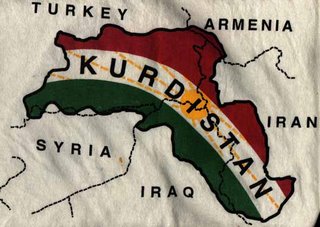
Various news reports have, over the last few days, highlighted the preparations undertaken by Turkey (and possibly Iran) for an incursion into Northern Iraq aimed at dampening the gathering impulse among separatist Kurds in the region to form an autonamous Kurdistan with the oil-rich Iraqi city of Kirkuk as it's capital.
DozaMe, a Kurdish blog that claims to "transmit the Kurdish cause," has compelling evidence of the pending incursion, including photographs. The author reports:
Unlike the 1990s, though, Uncle Sam's interest in cultivating an alliance with Turkey now hinges on the Turks willingness to ignore the perceived threat of Kurdish autonomy and stay out of Iraq. However, actions taken by Apartheid Israel in Iraq and the militant actions of the PKK in Turkey have created a real dilemma for the Turkish ruling class.
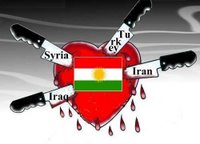 Two years ago, Seymour Hersh reported in the New Yorker on Apartheid Israel's campaign to use the Iraqi Kurds' secessionist scheme, over the vocal opposition of their ally Turkey, as a way of enhancing their own position in the region.
Two years ago, Seymour Hersh reported in the New Yorker on Apartheid Israel's campaign to use the Iraqi Kurds' secessionist scheme, over the vocal opposition of their ally Turkey, as a way of enhancing their own position in the region.
These circumstances - both domestic and international - have placed Turkey in a precarious position. On one hand, they know that disobeying orders given by Uncle Sam to stay out of Iraq will have serious consequences (loss of backing for EU membership, for example). On the other hand, their inaction on the Kurdish question coupled with the rise of Kurdish nationalism throughout the region - especially in Iraq - could lead to a domestic uprising that they could find difficult to contain.
While politicians and diplomats in Turkey point out that a move into Iraq, "would be politically sensitive," military leaders have not equivocated. The German Der Spiegel reports:
Given these facts, along with the players and interests involved - Uncle Sam and its Zionist allies, the Turkish military, Kurdish separatists, and the Iranian government - Northern Iraq, like Southern Lebanon, has within it the potential to become the flashpoint that ignites a much wider war in the Near East.
DozaMe, a Kurdish blog that claims to "transmit the Kurdish cause," has compelling evidence of the pending incursion, including photographs. The author reports:
The armies of Turkey and Iran are getting ready for showdown with the PKK. About 230,000 Turkish soldiers have been massing along the border with southern Kurdistan (northern Iraq) since April 2. The Iranians, in coordination with the Turks, have massed along "their" border with southern Kurdistan with about 30,000-50,000 soldiers according to Kurdish non-media sources close to HPG.Selcan Hacaoglu of the AP corrborates DozaMe's report and adds that armed clashes between Kurds and the Turkish military have already started to occur.
Turkey has deployed more than 30,000 additional troops in its predominantly Kurdish southeast and along its rugged border with Iraq and Iran to fight Kurdish guerrillas and stop them from coming across the frontier, officials said Thursday.Turkey's refusal in 2003 to go along with Uncle Sam's attack on Iraq along with these moves point to a sea change in Sam-Turk relations. Under CrimeBill Clinton, Uncle Sam provided more than $800,000,000 in military support each year to bankroll the Turkish government's slaughter of over 30,000 people along with the displacement of 500,000 to 2,000,000 more as the military laid waste to 3,000 mostly Kurdish villages.
Kurdish rebels killed two Turkish soldiers and injured a third in a grenade attack Wednesday on a military outpost, the Anatolia news agency reported, raising the number of Turkish troops killed this year to at least 17. More than 40 Kurdish guerrillas have also been killed in the same period in a series of clashes.
The Turkish deployment, which has been going on for several weeks, boosts an already large garrison in the region that by some estimates tops 250,000 soldiers.
Unlike the 1990s, though, Uncle Sam's interest in cultivating an alliance with Turkey now hinges on the Turks willingness to ignore the perceived threat of Kurdish autonomy and stay out of Iraq. However, actions taken by Apartheid Israel in Iraq and the militant actions of the PKK in Turkey have created a real dilemma for the Turkish ruling class.
 Two years ago, Seymour Hersh reported in the New Yorker on Apartheid Israel's campaign to use the Iraqi Kurds' secessionist scheme, over the vocal opposition of their ally Turkey, as a way of enhancing their own position in the region.
Two years ago, Seymour Hersh reported in the New Yorker on Apartheid Israel's campaign to use the Iraqi Kurds' secessionist scheme, over the vocal opposition of their ally Turkey, as a way of enhancing their own position in the region.These circumstances - both domestic and international - have placed Turkey in a precarious position. On one hand, they know that disobeying orders given by Uncle Sam to stay out of Iraq will have serious consequences (loss of backing for EU membership, for example). On the other hand, their inaction on the Kurdish question coupled with the rise of Kurdish nationalism throughout the region - especially in Iraq - could lead to a domestic uprising that they could find difficult to contain.
While politicians and diplomats in Turkey point out that a move into Iraq, "would be politically sensitive," military leaders have not equivocated. The German Der Spiegel reports:
The chief commander of Turkey's armed forces, General Hilmi Ozkok, has stressed that Turkey has the right to carry out cross-border operations under international law: "If the conditions arise, like every sovereign country, we will use those rights," Ozkok said on Sunday, according to the AP.Ozkok's backed his words with action. The Kuwait News Agency, KUNA, reported on 26 April:
An incursion into northern Iraq by military units of the Turkish Special Forces was reported Wednesday by a Turkish daily.This greater Turkish involvement in Iraq, taken in response to Uncle Sam's failure to contain the autonomist impuses of the Kurds in Northern Iraq, has drawn harsh words from Sambo Rice. NY Times Near East propagandist Steven Weisman quoted Sambo on Wednesday, writing that "Rice, without speaking directly to that threat [of a Turkish incursion into Iraq] clearly sought to discourage the Turks from doing anything on their own."
"The operation was aimed at chasing Kurdish secessionist armed elements near the Turkish border," the paper said.
"Turkish forces were reported several kilometers deep into Iraqi territory as they were chasing Kurdish gunmen in neighboring Kurdish villages," the paper said.
Iraqi Foreign Minister Hoshiar Zibari expressed dismay about the incursion and summoned Turkish Ambassador to Iraq Unal Cevikoz and asked him to convey to Ankara "Iraq's wish that such incusions be halted." Meanwhile, Iraqi Ambassador in Ankara Sabah Omran on Wednesday paid a visit to Turkish Special Representative in Iraq Oguz Celikkols at his office in Ankara and urged him to put a stop to the Turkish incursions because they could "upset law and order in the entire Iraqi territories." Celikkols is due to convey this wish to the Ankara government.
"Of course we want anything that we do to contribute to stability in Iraq, not to threaten that stability or to make a difficult situation worse," Rice said, referring to the presence of Turkish troops. "That is why a cooperative approach on this problem - cooperation between Iraqi and Turkey and the coalition forces - is very important."While it has largely remained off the corporate media's radar for the duration of Uncle Sam's occupation of Iraq, the dilemma Sam has created for itself in Northern Iraq has just begun reveal itself. One can hardly expect the lunatic crew of failures and fools that currently occupies the White House to address these politically sensitive problems involving Kurdish nationalism and the strategic prize of Kirkuk in a way that diminishes their volatility.
Given these facts, along with the players and interests involved - Uncle Sam and its Zionist allies, the Turkish military, Kurdish separatists, and the Iranian government - Northern Iraq, like Southern Lebanon, has within it the potential to become the flashpoint that ignites a much wider war in the Near East.
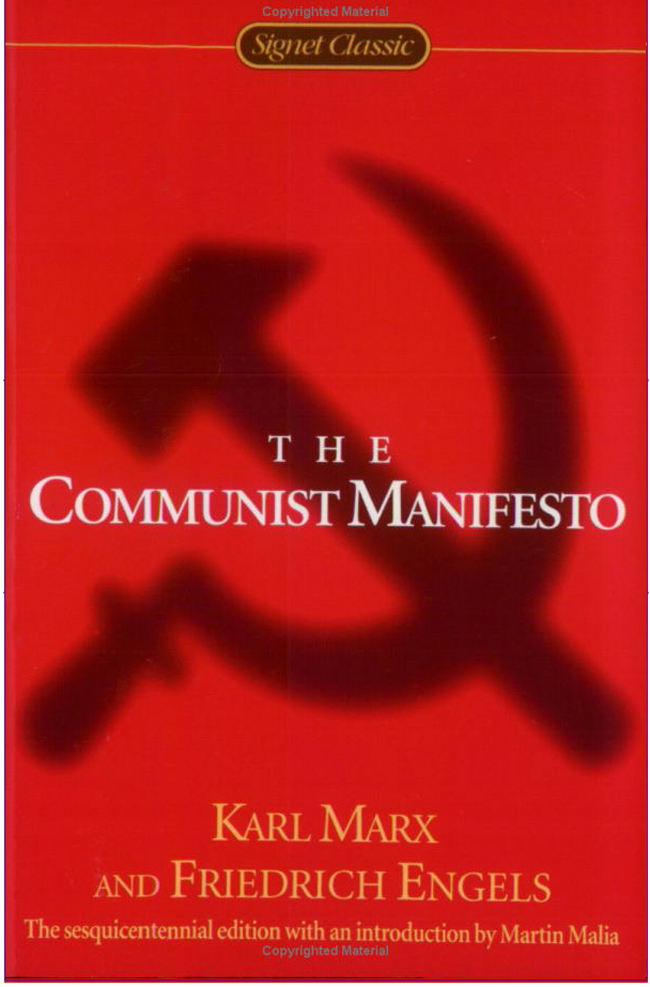


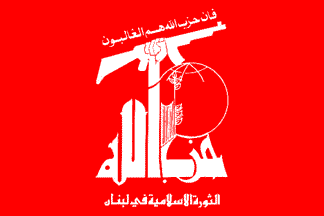

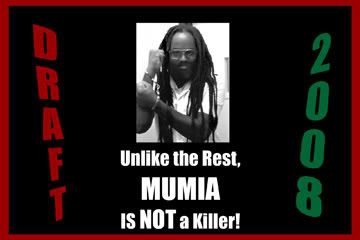

<< Home